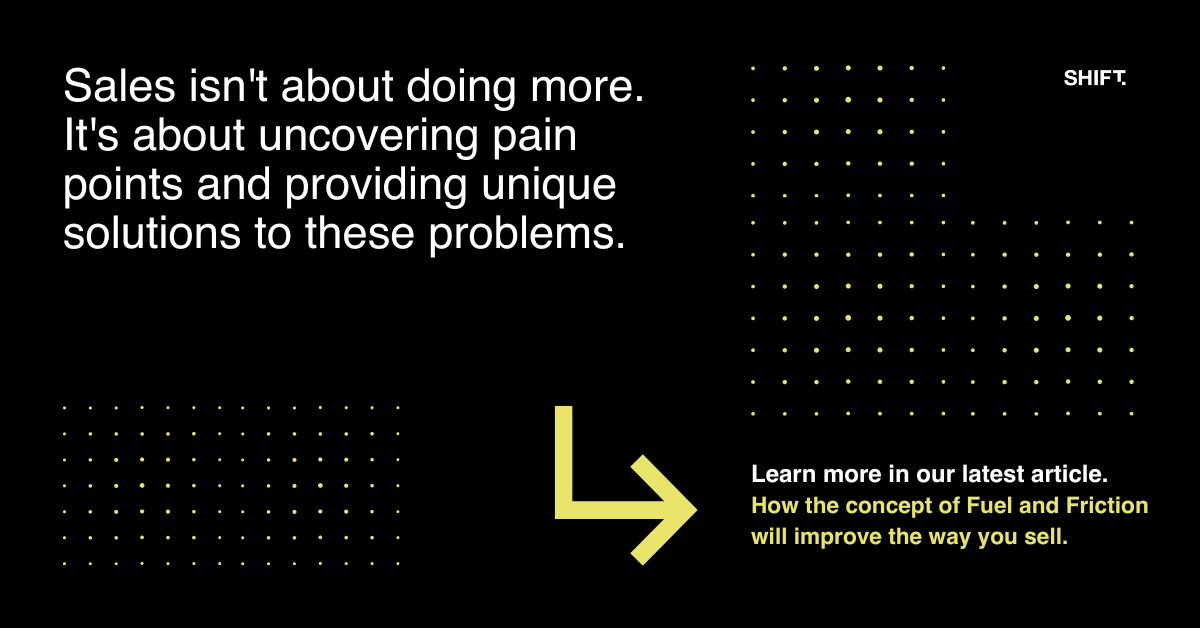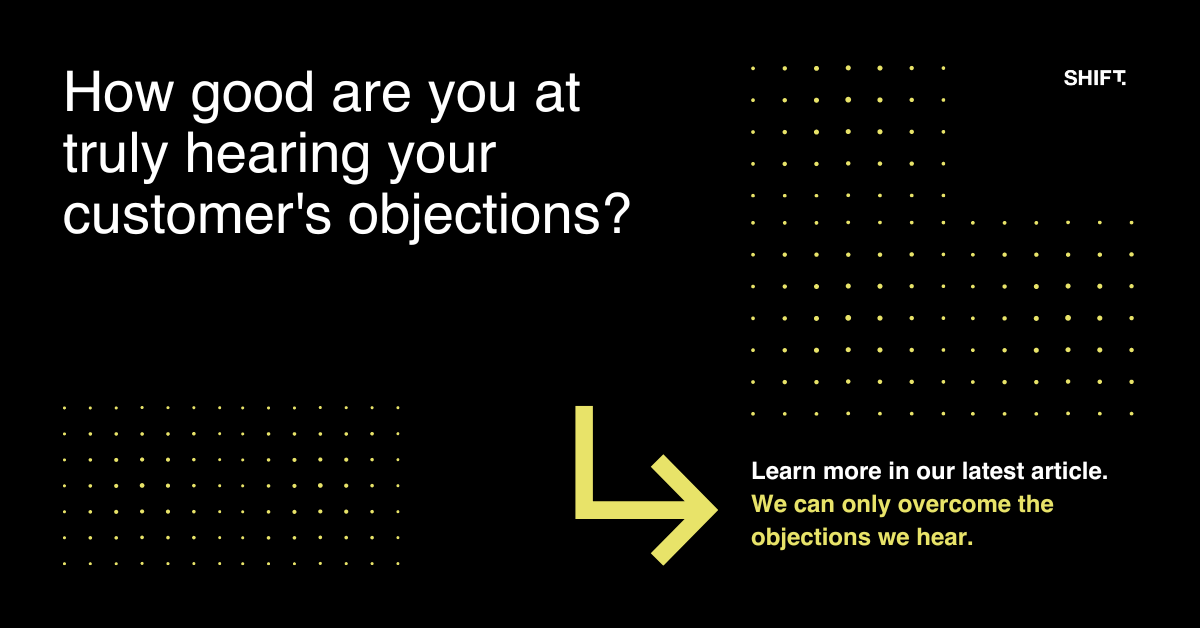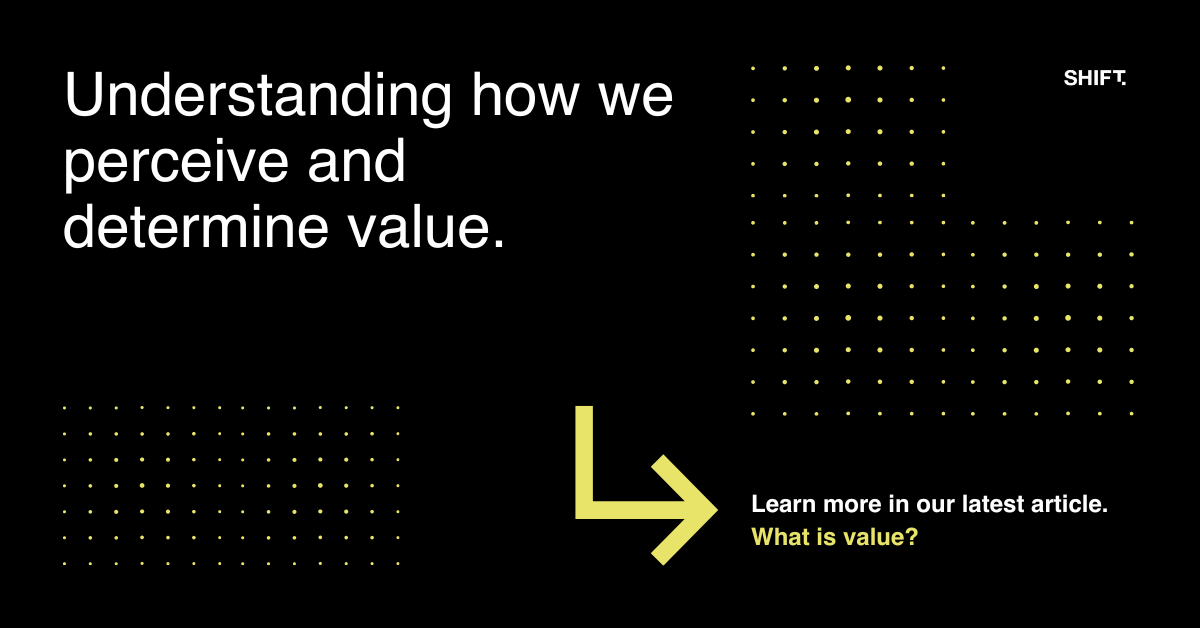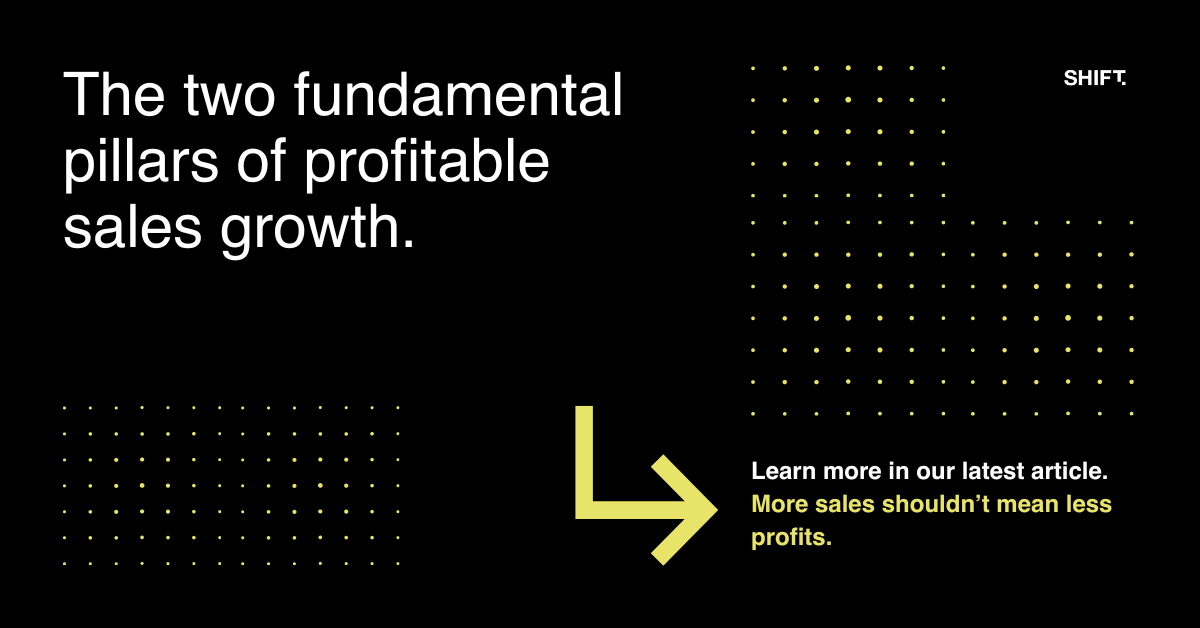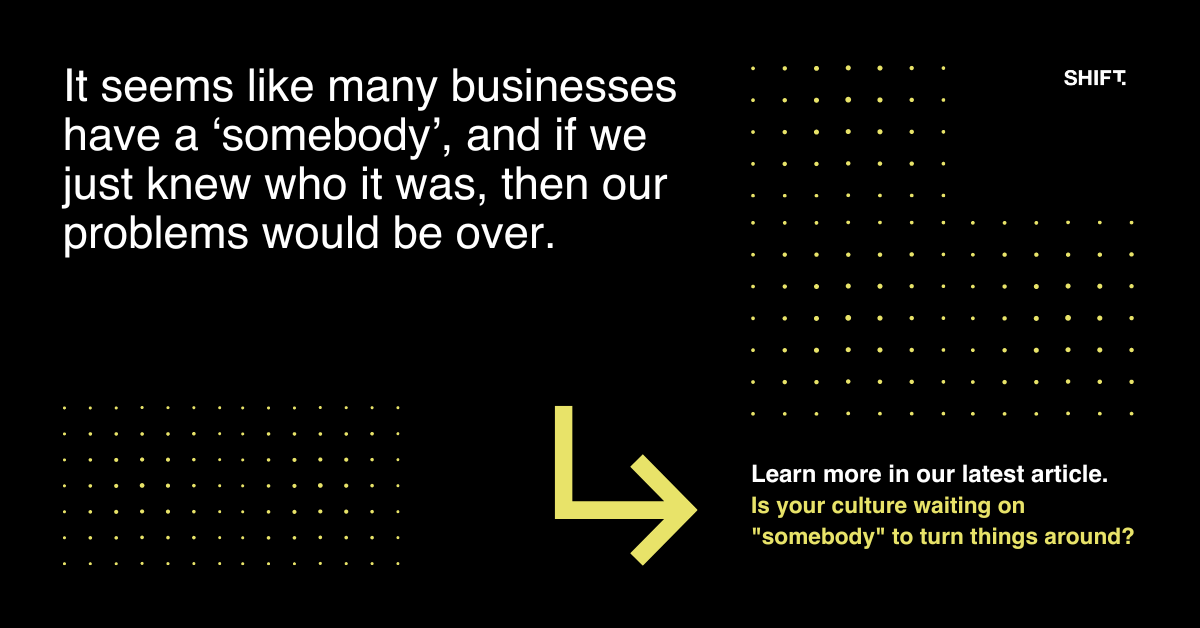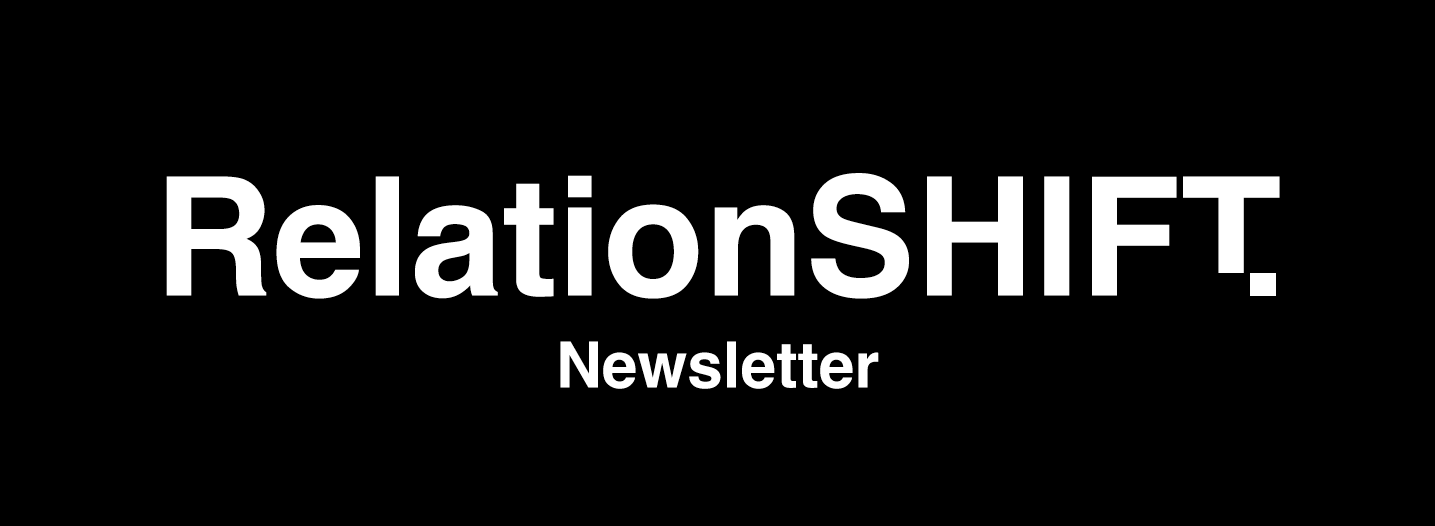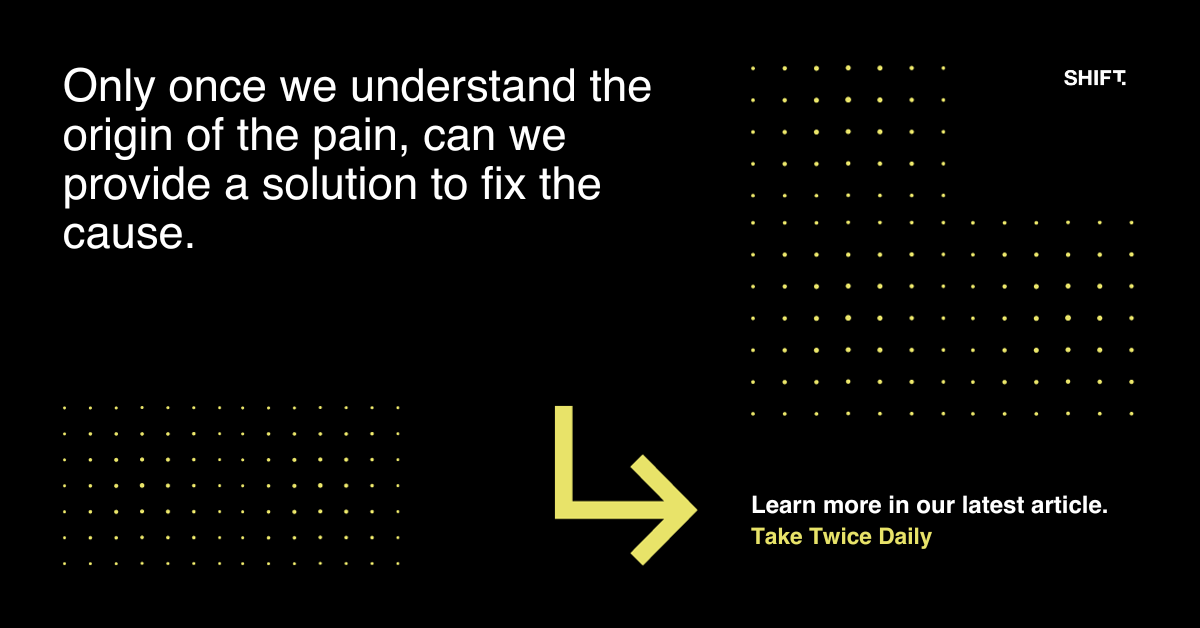“Somebody needs to do something about this. Otherwise, it is all going to turn to crap.”
This is a common sentiment I often come up against when engaging with businesses to understand what their culture looks and feels like. It seems like many businesses have a ‘somebody’, and if we just knew who it was, then our problems would be over.
A simple, one-line comment like this tells me so much about the people, the organisation’s culture, and the issues that must be addressed.
These issues often look like:
- Deflecting rather than Empowering
- Blaming rather than taking Responsibility
- Fear rather than Courage
- Me rather than Team
- Mediocrity rather than Growth
- Concern rather than Control
The issue is that the
‘somebody’ comment is not generally made in the open, not made in the high five, tell a good story, back-slapping rhetoric that happens in leadership meetings or conferences.
These comments are made in the halls, in passing, amongst colleagues, across business units, and worse still, to customers.
It is this sub-culture that is the true culture of the business.
Which breeds these kinds of general sentiments and beliefs
- “Nobody listens to what I have to say. It all falls on deaf ears.”
- “What can I do? I can’t make a difference.”
- “Yep, I brought that up plenty of times, and nothing happens.”
- “Plenty of talk around here and no action”
These sentiments make their way to the customer and become part of what the customer experiences. At best, the experience is inconsistent, where individuals driven by their own values to make the customer experience great do so, and others don’t. At worst, the whole experience is consistently mediocre.
The irony is that most companies will say they have a robust customer-centred culture; for some, they do. For the rest, they don’t take note of these windows of insight to seize an opportunity to re-focus on their culture to improve the customer experience. They’d prefer to live in blissful ignorance.
Salespeople are the customer's essential connection to the company, and salespeople are as good as any in the organisation at deflecting blame to ‘somebody’ else, to pump themselves up by throwing somebody else ‘under the bus’.
When we get these windows of insight that there is too much blame and not enough accountability, we must shift the focus. We have to shift our
‘locus of control’ from an external one, where we feel we are the victims of external things that happen to us, to an internal locus of control, where we take control of those things we can take responsibility for.
Relationship selling is all about building trust – when we blame somebody for things outside our control in front of our customers, it diminishes trust. When we take control and responsibility for the things we can change, we build trust.
Happy selling,
Andrew Nisbet
